As companies prioritize on-demand customer service and assistance and also want to grow their customer base, the need for contact center employees is growing exponentially.
In the US alone, the contact center industry employs almost 3 million people and it’s only getting bigger. The global contact center market is expected to reach over $4.1 billion by 2027.
While the contact center industry is taking off, it has an employee turnover of 30-45%. What’s causing this attrition at about 3x the overall average of 10-15%? For contact centers, turnover is often caused by misaligned expectations or a poor culture fit. This can translate to increased costs, lower productivity for your teams, and even decreased customer satisfaction.
Successful contact center employees have certain characteristics and skills that help them excel. In order to ensure you’re hiring the right people for the job, you want to run assessments for these qualities during the hiring process.
Let’s take a look at what some of the characteristics you should look out for are and how you can accurately assess skills and behaviors during an interview for contact center agents.
What’s in?
Like what you see?
Don’t miss out. Subscribe to our quarterly digest to get the latest TA and TM resources delivered right to your inbox.
Customer service skills needed in a modern day contact center
In the past, a contact center employee mainly took incoming phone calls. However, as companies adopt new communication methods for customer service, contact center employees also need to address issues and contact customers through email, live chat, social media, and text messaging.
There are also different types of contact centers. For example, inbound contact centers employ mainly customer service and support representatives. On the other hand, outbound contact centers mostly hire salespeople and telemarketers.
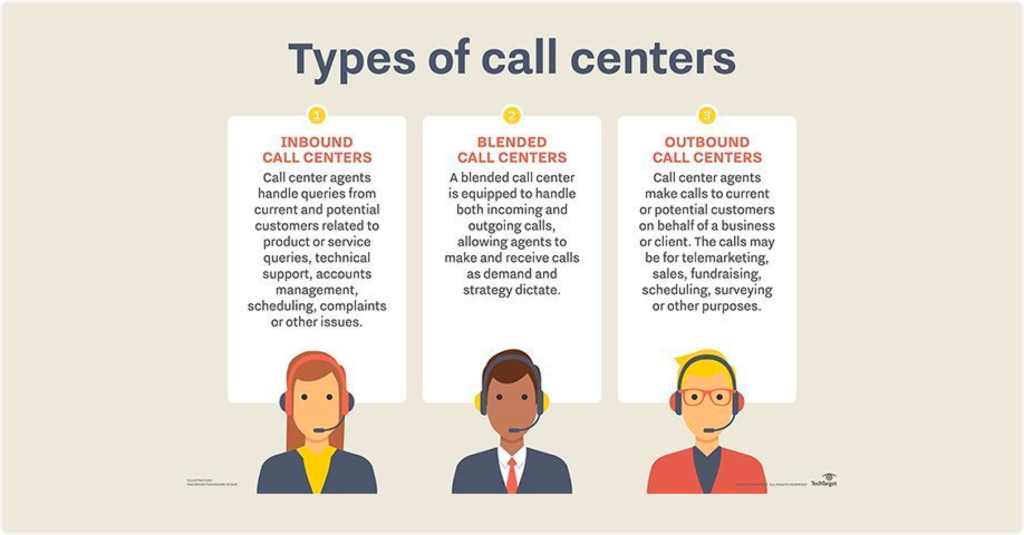
Although there are different types of contact centers, their employees need to possess similar traits and skills to be successful in the role.
These two types of roles are very different on the surface, but they actually have a lot of tasks in common. Great hires in both kinds of contact centers typically possess certain customer service skills and characteristics in common, including service orientation, multitasking, and active listening skills.
Before you hire, you want to take a minute to identify what characteristics are predictive for success at your organization’s contact center. Then, you can use assessments to predict job performance and choose the best hires.
Hire better live chat agents, at scale.
Dive into the rise of live chat, the skills of top-performing agents, and how to best assess them to reduce attrition and guarantee top-notch customer service.

8 assessments to make better contact center hires
Here are some of the most popular assessments you can use to identify the best hires for your contact center.
1. Personality questionnaire
A personality questionnaire helps you get to know who is applying to your open position. Unlike other assessments, the personality questionnaire is strictly about the candidate, what they prefer, and how they behave.
In short, this type of behavioral pre-hire assessment can help you determine whether or not a candidate has the right traits to become a successful contact center employee.
There are numerous types of personality questionnaires. When choosing one, you’ll want to confirm that it is scientifically validated and gives you an accurate overview of a candidate’s personality.
For example, Harver’s Personality Print questionnaire assesses three dimensions of characteristics:
- Relating Scales: How individuals relate to others, like agreeableness or competitiveness
- Thinking Scales: How individuals approach problems, like learning focus or reflective thinking
- Working Scales: How individuals approach their work, like resilience and work intensity
Candidates are given a series of statements that they then say how much they agree or disagree with.
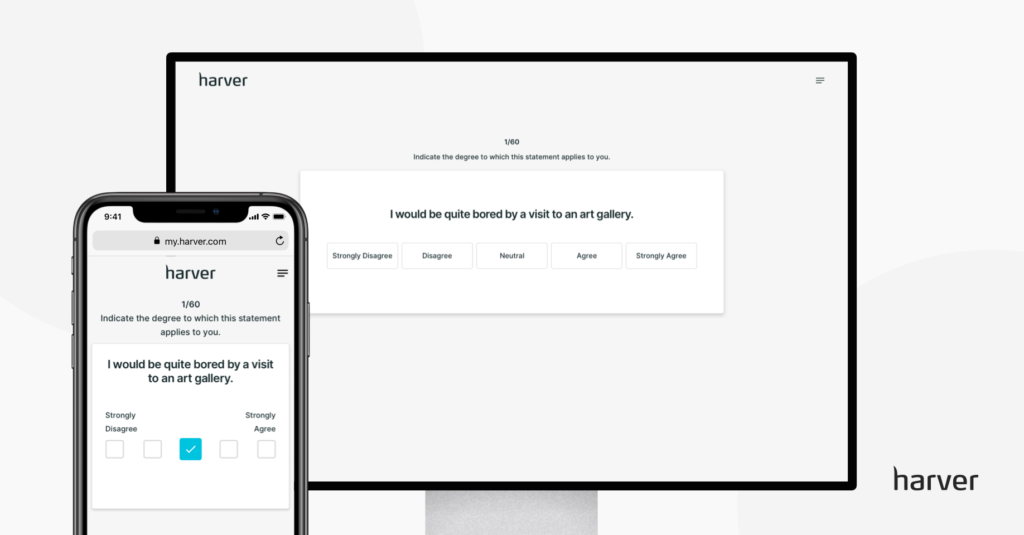
When they’re done, you can see where they fall on a scale of different qualities. You can even set organizational expectations to compare how the candidate matches your company benchmarks.
A personality questionnaire can help you judge a candidate’s natural behavior to make a better hire. However, make sure that the qualities you’re assessing are predictive for on-the-job performance to get the most accurate results.
For example, to put it simply, a candidate who ranks highly on customer focus would likely be a great employee in an inbound contact center.
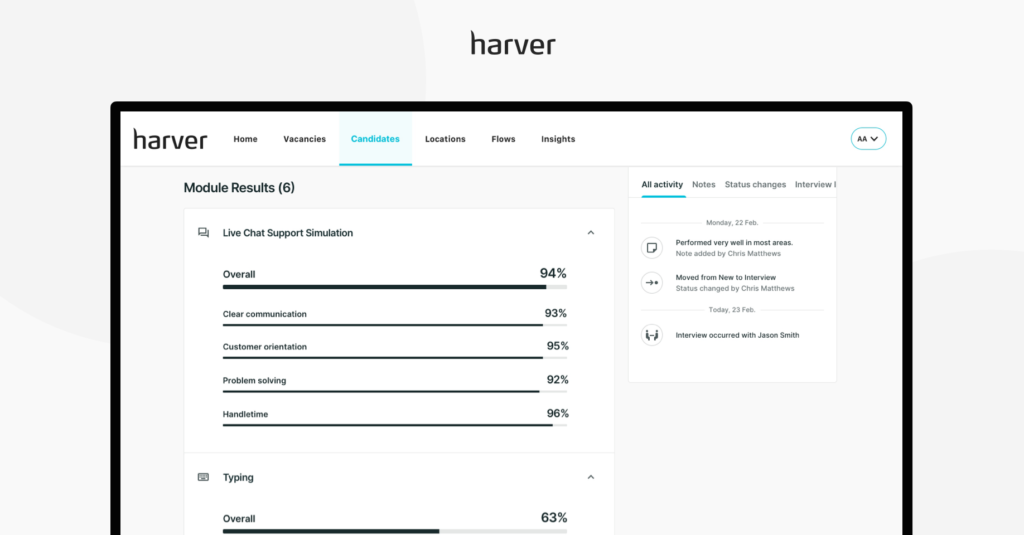
2. Situational judgment tests
Your contact center employees are put in direct contact with customers who may have a question, problem, or challenge. This means they’re often tasked with working with disgruntled buyers who may already be unhappy with your service. It’s their job to turn the customer’s experience around.
In an outbound contact center, they might often encounter rejections and even rudeness. When contact center employees are dealing with such sensitive matters, it’s important to know how they will react.
Although it’s challenging to see how a candidate would respond to issues before they’re actually on the job, you can assess this by using situational judgement tests (SJTs) in your application process.
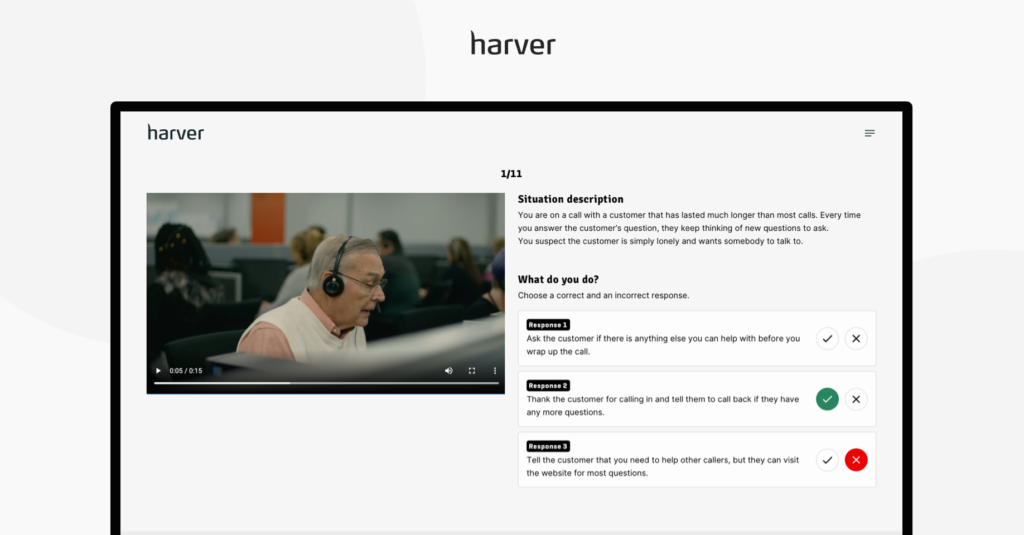
Offering candidates a realistic job preview through SJTs is one way to effectively measure how candidates may react or respond to different events. These tests put the candidate in a simulated scenario similar to what might happen on a typical day at the job. For contact center employees, this might be a test phone call with an unhappy customer.
Situational judgment tests also give candidates a better idea of what the job is really like. Candidates might find that the job isn’t what they expected and not continue with the application process or not accept an offer.
Removing these individuals from the hiring process early can save you time and money while also reducing time to hire. With the ability to predict job success and even early attrition, your recruiters can focus on the best fit candidates right away.
3. Live chat simulation assessment
Situational judgment tests are a great way to cost-effectively measure the behaviors of dozens of candidates. However, it isn’t exactly a replacement for an on-site test, especially for candidates closer to the hiring mark.
A better option is a chat simulation assessment, which mimics the day-to-day work environment and exposes the candidate to life-like situations, giving a clearer picture of how they’ll react on the job.
Unlike an on-site test which can only be done with a handful of shortlisted candidates, the Harver live chat support simulation module enables you to test hundreds of candidates at the same time, without having to scale up your recruitment team.
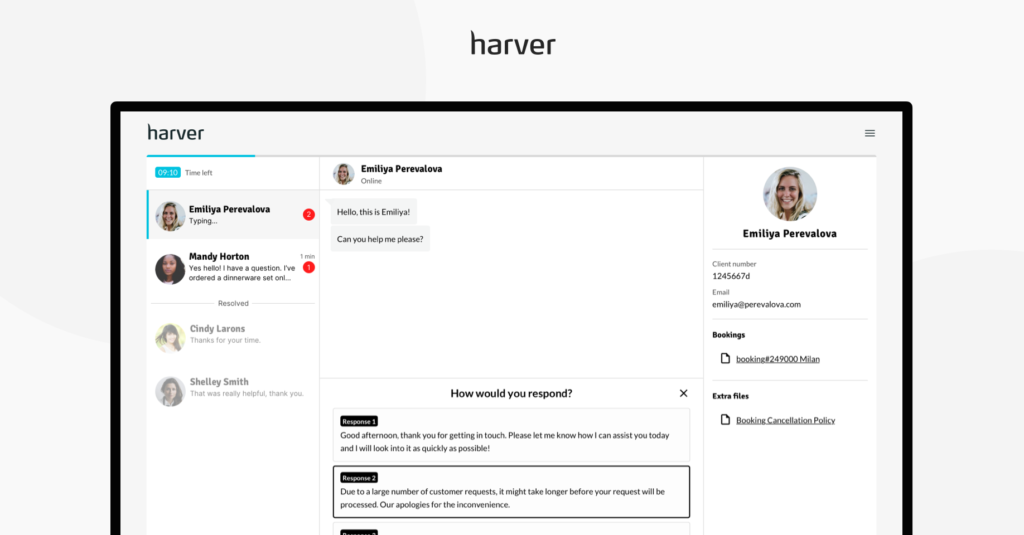
The test is completely remote, engaging and short, so it offers a great experience to candidates, while helping you see which applicants would fit both the job criteria and the company culture.
You can try out the Harver live chat simulation test below.
Experience our best-in-class Live Chat Assessment first-hand!
Perfect for remote hiring, our live chat assessment makes it easier than ever to hire live chat agents. Candidates experience the job, while you get actionable data to drive hiring decisions.
4. Multitasking test
Contact center employees often spend a lot of their days switching quickly between tasks and calls, look up information while on the line, and more. In some cases, they might even be talking to multiple customers or potential buyers at once.
Many people aren’t great at multitasking. Their attention is split, meaning they’re not able to give the best response to each individual or they feel overwhelmed quickly. A multitasking assessment can help you weed out candidates who may not be able to switch between tasks rapidly.
Some multitasking assessments gamify the process so it’s fun for candidates. Applicants will play games that test short term memory and their ability to switch between tasks quickly.
You’re then given an overall score that rates the candidate’s ability to multitask. You then have a better idea of how well a candidate will fit in your open contact center role.
Here’s for example how the Harver multitasking assessment looks.
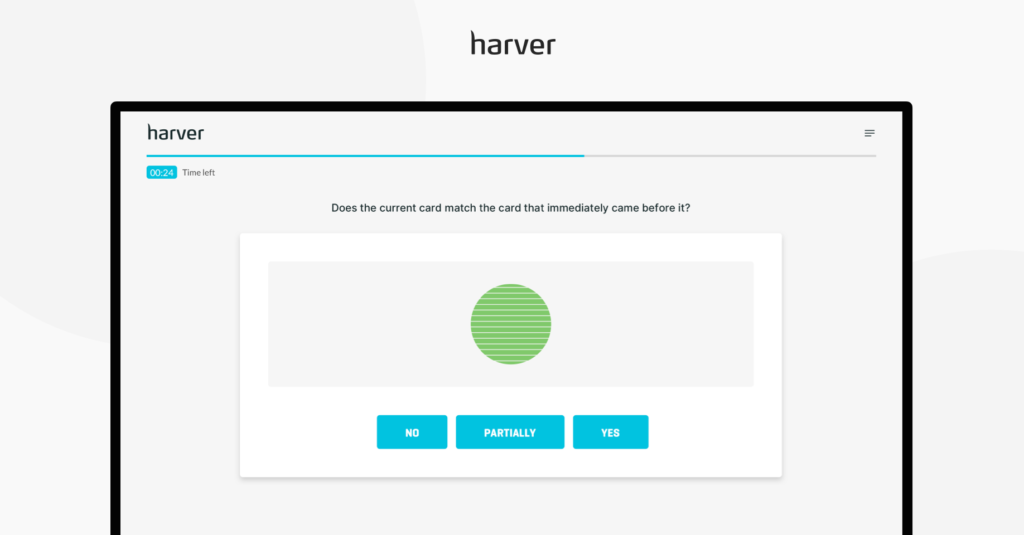
5. Language proficiency test
Depending on the size or location of your company, you may have customers speaking different languages. Hiring contact center employees who are fluent in different languages can improve customer experience and ensure everyone is taken care of as efficiently as possible.
While some candidates may claim to be fluent in other languages, you’re going to want to test their skills before you make an offer. A language proficiency assessment is a surefire way to do this.
Language proficiency assessments offer different grammar, spelling, and reading comprehension tests to candidates. These tests are particularly useful if one of your requirements is fluency in a particular language.
If you’re hiring for multiple languages, find a test allowing you to assess a broad range of languages, making sure you’ll get all the results in one place. You can also set certain benchmarks that automatically remove candidates who don’t meet qualifications.
- White paper
Before you continue!
Don’t forget to grab your free copy of our new whitepaper on the digital transformation of contact center recruitment processes. Learn about:
- The biggest challenges in contact center recruitment today and how to overcome them.
- The 4 pillars of Digital Transformation
A top BPO’s journey towards a digitally transformed recruitment procest

6. Typing test
Typing is a big part of just about any job these days. However, this is particularly true for contact center employees that need to communicate quickly and efficiently through multiple channels such as chat, email, and text messages.
If a candidate is slow at typing, they might not be able to answer customer questions as efficiently as possible. When customers are quick to grow impatient, you can’t afford to hire a contact center employee who takes too long to type out messages.
Using a typing assessment can help you identify if your candidates have strong typing skills, but you can also learn their typing style. An assessment will tell you if the person is quick and sloppy or slow and correct when typing.
Ideally, you’ll want to hire candidates who are quick and correct. A few mistakes when typing is okay, but if candidates are overly sloppy their correspondence with customers could come across as unprofessional––reflecting badly on your brand.
7. Computer literacy skills
Like typing skills, computer literacy skills are key for most jobs and industries today. But contact center employees need to know more than just how to use basic apps and tools.
Many companies use various communication tools to stay in touch with customers. This means contact center employees need to be able to quickly learn to work with new tools and the processes that go along with them.
Using a computer literacy assessment during the interview phase can allow you to pick out candidates who may not understand computers or technology. If candidates aren’t at least familiar with the tools and processes you use, they might be too challenging to train.
On the other hand, don’t discredit a candidate just because they don’t have extensive knowledge of the systems you use. Look for trainability when it comes to computers and technology.
8. Cultural fit assessment
Being happy with a new job is more than just enjoying the work. For new hires to feel satisfied in their new position, they also need to fit within the organization’s culture.
People have different expectations of what a company should be. It’s important to gauge your candidate’s expectations before any offers are extended to double check that your organization offers the culture and benefits they’re looking for.
An organizational fit assessment works by asking candidates to rate certain aspects of a company, such as leadership expectations. Their responses are then compared to how you’ve rated your own company to see if the candidate is a match.
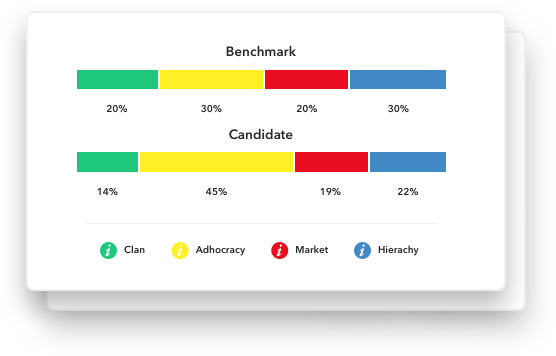
It can be tempting to ignore organizational fit when hiring. While some individuals may adapt to a different office environment, others may find that they’re too unhappy in a position that doesn’t meet their expectations. This can result in high turnover.
To get a closer look at the cultural assessment module developed by Harver, you can book a demo below.
If you’d like to see how Haver can transform your hiring process,
book a demo here!
Next steps
Contact center employees should be a clear extension of who you are, what you stand for, and what you value. Unfortunately, if you’re not hiring the right employees, it can be difficult to create a customer service experience that adequately represents your company.
Using assessments can help you identify the right employees for your contact center. By putting in the work ahead of time to find people who are truly able to represent your brand, you can create a team of brand ambassadors ready to help customers with their problems and sell to potential leads.
The Harver platform offers a suite of pre-employment assessments specifically designed for volume hiring. If you’d like to see our software in action, you can book a demo below.
Ready to transform your hiring process?


